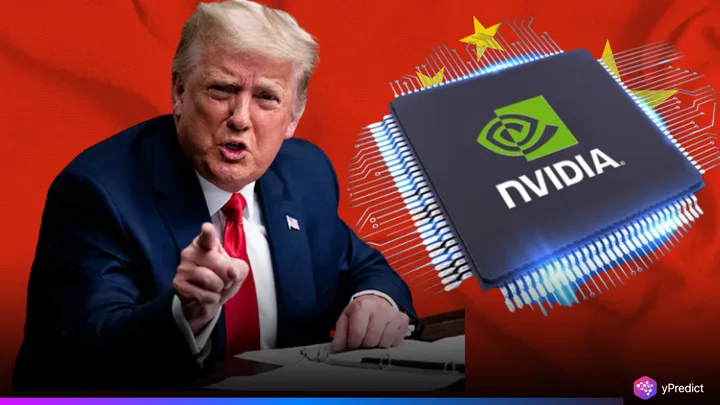
Trump’s latest move, allowing Nvidia to sell chips in China, comes with a very unusual twist. For the first time in U.S. history, export licenses for Nvidia Chips now include a revenue-sharing requirement. Commerce Secretary Howard Lutnick framed it bluntly: the government isn’t selling its best stuff anymore, but a “fourth best” tier instead. Beyond the novelty, this is the first time a sitting president has personally negotiated corporate export terms in real time. In the Oval Office, Trump initially demanded 20% of revenues from Jensen Huang, who managed to push that down to 15%. It’s hard to overstate how unprecedented it is for a trade deal, particularly involving an AI Chip, to be brokered like this.
This isn’t an isolated stunt. Trump’s corporate command strategy is on full display. Just days earlier, he publicly called for Intel CEO Lip-Bu Tan’s resignation over China ties, only to reverse course after a White House meeting and praise him as a “success.” Apple also leveraged the moment, securing a full exemption from semiconductor tariffs by undertaking $100 billion in U.S. manufacturing investments. Tim Cook even presented Trump with a custom glass plaque manufactured entirely in the U.S., signaling the kind of personal gift diplomacy that seems to be part of this playbook.
China’s Response with Counter-measures
State media has launched a full-scale campaign warning that Nvidia H20 AI Chips could be remotely shut down, track users, and impose usage restrictions. Notices to Tencent, ByteDance, and Alibaba discourage using these chips in sensitive applications. China is pushing Chinese firms to “build up their own secure and controllable ecosystem.” This is a strategic counter-offensive, signaling that Trump-China deals, even if technically approved, won’t be smooth in practice.
Treasury Secretary Scott Bessent has framed the deal as a potential model beyond Nvidia Chips. He calls it a “beta test,” hinting at future revenue-sharing export deals in other industries. The first tranche of revenues is earmarked for debt reduction. But taxpayer distributions could follow. In other words, this deal turns trade policy into a revenue-generating mechanism. Bloomberg’s Big Take analysis frames it as a shift from security-based controls to a pay-to-play approach, treating national security as a business transaction.
Legal And Constitutional Questions
White House officials acknowledge that the structure effectively functions as a 15% export tax. It directly conflicts with the Constitution’s Export Clause. The Export Control Reform Act of 2018 also forbids fees linked to export license applications. Courts are likely to be involved before long. Enforcement mechanics remain unclear. There’s no existing framework for collecting ongoing revenue from private companies for exported Nvidia Chips or any AI chips. The market is already reading this as a potential template for access.
In short, this is historic on multiple fronts. Trump is personally negotiating corporate terms. He is creating revenue-based export controls and making trade policy in real time. At the same time, he is openly challenging constitutional limits. The deal sets a precedent for expansion into other industries and could fundamentally change how the U.S. handles strategic competition with China. Revenue generation is now explicitly baked into national security decisions, with Trump, Jensen Huang, and Nvidia Chips at the center of the experiment.






